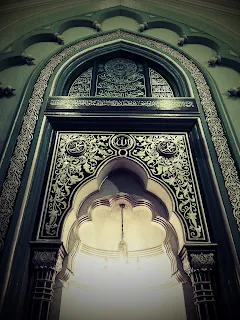Yet, the treacherous terrain of Satanic impulses divert man to the aggressive pursuit of material glory and honour, of pride and riches, of power and pelf. When a people or a nation is drunk on the evil and injustice of dominance and of total control, enslavement and oppression of another people inevitably follows. Such a vicious and decadent socio-political-religious order is bound to bite the dust through its internal contradictions when a new, superior order emerges to replace it. This is the law of the rise and fall of nations in the world.
The coming of a Khalifatullah in this context represents a transformative moment when an old order crumples to dust and a new spiritual order takes its place in the world. In the spiritual history of human kind, High representatives of Allah have always been raised amongst almost all nations and peoples. Indeed, It is the pierce light of Divine commandments that help the messengers to guide their people with wisdom and prudence against all odds. It is by obeying Allah and following in the footsteps of the messenger of God that small bands of Divinely-inspired groups outsmart their much larger opponent groups, relying completely upon the Exalted Might of the Lord, and in their own readiness to sacrifice everything in His way. The revolutionary transformation in the spiritual outlook of such wo/men comes about due to the sublime teachings and noble example of the Divine savant in their midst. The larger purpose of the establishment of the Jamaat Ul Sahih Al Islam in this era, with the advent of the Khalifatullah Hazrat Munir Ahmad Azim Saheb (aba) of Mauritius, is indicative of the continued vitality and application of the time-tested Divine Law of spiritual revolution, Alhamdulillah, Summa Alhamdulillah.
Reproduced Below are extracts from the Friday Sermon of 28 May 2021 ~15 Shawwal 1442 AH delivered by Imam- Jamaat Ul Sahih Al Islam Hazrat Khalifatullah Munir A. Azim (aba) of Mauritius.
The Objectives of the Jamaat Ul Sahih Al Islam- 1
The goal of Jamaat Ul Sahih Al Islam in this world is revolution in governance (This is - one of the meanings of: ‘Arise and Create a New World’).






